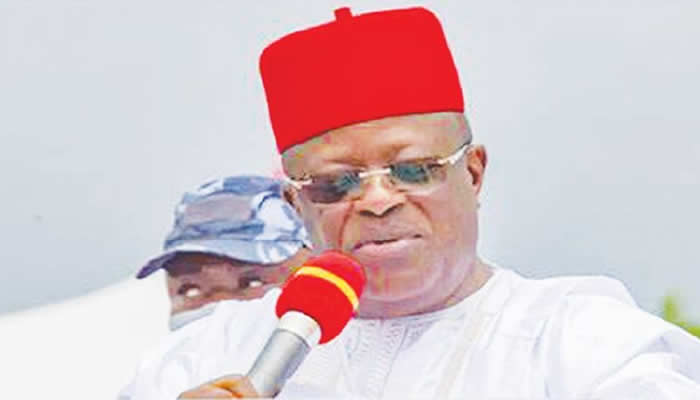Dave Umahi, the Minister of Works, has made a public call for unity and collaboration, urging prominent figures from the South-East region, including former presidential candidate Peter Obi, to join forces with President Bola Tinubu’s administration. Umahi’s appeal centers on the belief that the South-East’s prosperity and Nigeria’s overall progress hinge on a united front, transcending political affiliations for the common good. He emphasized that leadership is about serving the people and urged all stakeholders to work together for the betterment of the region and the country. This call for unity coincided with Umahi’s announcement of significant progress in the Lagos-Calabar Coastal Highway project, a key infrastructural initiative with far-reaching economic implications.
Umahi’s call for political alignment with the Tinubu administration underscores a broader shift in the South-East’s political landscape. He asserted that all South-East governors, irrespective of their party affiliations, are now collaborating with the President, signaling a new era of cooperation and shared goals. This newfound collaboration, according to Umahi, aims to ensure the region’s equitable share in national development and address historical grievances related to federal presence and infrastructure development. He pointed to the ongoing construction of the Second Niger Bridge and other critical road projects as tangible evidence of President Tinubu’s commitment to the region’s progress. This shift in political dynamics suggests a move towards pragmatic collaboration, prioritizing regional development over partisan politics.
Umahi’s announcement regarding the Lagos-Calabar Coastal Highway highlights the project’s strategic importance and its potential to stimulate economic growth. The first section of the highway, spanning from Ahmadu Bello Way to Eleko Junction, is nearing completion, with over 80% of the work already finished. The impending commencement of tolling in December signifies a major milestone, not only for the project itself but also for the country’s broader infrastructure development agenda. Umahi projected a 10-year return on investment, emphasizing the highway’s economic viability and its role as a catalyst for regional integration. The highway, equipped with solar-powered lighting and CCTV infrastructure, is envisioned as more than just a transportation route—it represents an economic corridor with the potential to transform the region’s economic landscape.
The Minister’s emphasis on the Lagos-Calabar Coastal Highway’s economic significance underscores the project’s potential to drive growth and development across the country. Its strategic location along the coast will facilitate trade, connect communities, and create new economic opportunities. The inclusion of advanced features like solar-powered lighting and CCTV systems highlights the commitment to sustainability and security, enhancing the highway’s overall value and appeal. The project’s projected economic benefits extend beyond the immediate region, contributing to national economic integration and promoting interconnectedness. The successful completion of the first section and the imminent commencement of tolling signify tangible progress towards realizing this ambitious vision.
Umahi’s statements reflect a broader narrative of development and progress under the Tinubu administration, particularly in the South-East region. He contrasted the current state of affairs with the past, highlighting the lack of federal presence and inadequate infrastructure development. The Second Niger Bridge, a long-awaited project, serves as a powerful symbol of this change, demonstrating the government’s commitment to addressing historical imbalances and fostering equitable development across all regions. The ongoing construction of other major road projects further reinforces this narrative, showcasing the administration’s focus on infrastructure as a key driver of economic growth and improved quality of life.
In essence, Umahi’s message calls for unity, collaboration, and a shared vision for the future. His appeal to Peter Obi and other political figures to join forces with the Tinubu administration underscores the importance of putting aside partisan differences and working together for the betterment of the South-East and the nation as a whole. The progress on the Lagos-Calabar Coastal Highway, alongside other ongoing infrastructure projects, serves as a tangible manifestation of the government’s development agenda and its commitment to creating a more prosperous and interconnected Nigeria. The message emphasizes the need for collective action and a shared commitment to national development, transcending political divides and prioritizing the common good.














